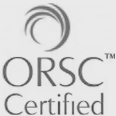Professional Coaching fosters a safe and brave environment where there is freedom from judgment and freedom from expectations that someone should behave according to specific corporate mandates. The coaching environment it a brave space to challenge thinking, to appear vulnerable, to observe, to explore, to experiment, to learn and to be in a place where you matter. Shift From First Impulse to Best Instinct™
Coaching works best when there’s a:
- There’s a willingness and readiness to learn and grow
- There’s an important gap between where you/your team are now and where you/your team wants to be
- Commitment to do the work needed to explore blind spots, discomfort and challenges that stand in our way
Successful coaching clients know the value of sharing ideas with someone who understands them and their wants and needs. Talking about options with a coach who listens objectively and confidentially is often enough to have choices all become very clear.
- You take yourself and what you want more seriously.
- You take more effective and focused action immediately.
- You start noticing and asserting against barriers that get in your way.
- You set personal and professional goals that are clear and meet your needs.
- You communicate what you need and want from others in a more responsive way.
- You create momentum to achieve more and develop more powerful leadership skills.
- Confidentiality & Security: Hold conversations private. Abide by ICF Ethics.
- Accountability: Achieve specific ‘fieldwork’ towards reaching goals, desires, dreams.
- Honesty & Trust: Raise self-awareness of strengths: where hold back, give up, deny or rationalize. Trust and belief in the client and the coaching relationship.
- Co-creation: Live a life of increased clarity, joy. Reduced excess stress, pressures.
- Championing: Deepen learning, forward action and acknowledge wins, learnings, accomplishments.
- Supporting: Set goals & move forward towards fulfillment, work – life balance and self-management.
Coaching creates an environment where there is freedom from judgment and freedom from expectations that someone should behave according to typical corporate mandates. In the coaching environment it is safe to question, to appear vulnerable, to observe, to explore, to experiment, to learn and to change:
- Improve impact at work … Identifying specific targets and contribution to fulfill personal and professional goals
- Reaching targets … Accomplishing this consistently requires a manager who also coaches a team to work together to reach extraordinary goals.
- Turning around a difficult situation. …Handling business or personal challenges.
- Prioritizing actions and projects. …For learning, developing, progressing and leading staff.
- Business planning, budgeting and goal-setting.
- Integrating business and personal life for balance.
Coaching is a concept that dates back to the 17th Century , widely recognized in the worlds of sports and athletics. Coaching is an emerging profession of personal and professional development based on concepts and experiences from sports, business, spirituality, psychology and organizational development.
In the past few decades, coaching has spread rapidly across the globe in private and public sectors and in social and business communities. Coaching reflects a shift in self-awareness; awareness of choice and the conviction to make choices based on values of self-reflection, curiosity, clarity, integrity, advocacy.
Life, Executive and Leadership Coaching focus on what’s most important to:
- Revealing deeper needs, wants and desires; Acknowledging fears, failures, learnings.
- Identifying and inspiring big opportunities to change and grow, through success and adversity.
- Discovering unique strengths, gifts and capabilities that are known and those that are untapped.
- Creating an actionable growth-oriented plan with a list of priorities & goals.
- Holding accountability to focus and keep moving goals forward.
- Helping to stay on track without sabotaging self or others.
- Finding innovative ways to make breakthroughs effortless.
Where Life, Executive and Leadership Coaching differ is in the scope of the conversation.
Life Coaching focuses on the individual’s personal goals and desired outcomes.
Executive Coaching focuses on enhancing performance goals and business results.
Leadership Coaching brings expanded focus to leader competencies and the inner assumptions that drive behaviour towards or away from personal and team leadership effectiveness.
Executive Coaching is for people who are central to an organization’s success and are being groomed for additional roles and responsibilities. This includes individuals at C-level, heads of major business units, technical or functional experts and high-potential young leaders.
Through facilitating learning and development rather than exclusively training, telling or instructing, coaching conversations cut through the clutter to identify deep assumptions and belief systems that impact behaviour and results.
Coaching conversations facilitate the desire for greater knowledge, raised self-awareness, conscious intentions and strengths development to foster essential behavioural change. Coaching is a transformative process. When consistently nurtured, coaching uncovers the greatness within.
We begin with an orientation meeting. During this meeting, coach and client design an alliance to identify coaching goals, expectations and accountabilities.
Coaching duration is pre-arranged according to the coaching program selected. You determine the agenda/topic of each coaching session. The coach designs a plan with you that makes the most of the opportunities and challenges discussed. When taking on a large goal, we help you design a project and provide the support and structure needed to make sure it gets done. We bring out your best by helping to strategize and celebrate the wins, particularly the short term wins. There are often assignments and reflective inquiries for new perspectives or a challenge to try something in a new way. These often form the basis for the next session.
Partnering with clients in a confidential thought-provoking conversation and creative process that inspires them to maximize their personal and professional potential, provided by a credentialed coach. Coaching processes and conversations lead to meaningful insights, positive reinforcement, supportive guidance and peak performance. A coach supports clients who:
- Are going through career, business or life transition
- Want to fulfill a secret dream
- Want to spend more time & energy on what matters
- Determine what truly is their purpose, what drives them forward
Coaching is for passionate people who want more. A coach helps set larger, more rewarding goals, develops a strategy to achieve them and provides support through the process.
Coaching is a process for change. The magic happens in between the sessions, when session insights, questions and accountabilities are processed over time and picked up at each subsequent session.
Credentialed coaches complete rigorous training, education and practice requirements, providing testimony to their commitment to excellence. “In today’s fast-paced world, growing numbers of businesses, organizations and individuals are turning to professional coaching to increase their effectiveness, build relationships and reach their goals. The International Coach Federation is the support network for professional coaches. Whether it’s Life Coaching, Executive Coaching, Leadership Coaching or any other skilled coaching, ICF leads the global community in advancing the profession.”
Coaching and mentoring have a unified objective in developing an individual’s greatest unique potential. The difference is in their expertise and approach.
Coaching:
- Challenges clients to reflect deeply within themselves.
- Focuses on asking powerful questions to get and forward deep learning and insights.
Coach is:
- Expert on people and their development
- Skilled at observing, active listening, powerful questions, championing, acknowledgement and challenging, among many others, to deepen the learning and forward the action of the coachee
Mentoring:
- Provides clients with a ‘seasoned’ professional to share their experiences.
- Guides mentee, including offering advice on their professional growth and development.
Mentor is:
- Expert in a particular industry or field thereby earning credentials to offer advice.
- Skilled at a variety of techniques, such as coaching, consulting and training.
- Therapist asks you to approach the bike and asks about prior associations
- Consultant rides the bike; writes instructions on how to ride it and hands you a report
- Coach asks you to get on the bike and walks along side you as you ride
With Coaching, you are doing the work. Your coach serves to guide you and bring forth, from the inside out, the answers to your questions, your wants, needs, desires, to see, feel, explore, find and celebrate with you, listen to you, share and learn equally. A coach holds the belief that you already know what you need, what colour bike you would choose, where to go and for how long, when to swerve and when to stay on track and when to take cover… even when you think or believe that you don’t know. Your coach knows you know. A fundamental difference between coaching and therapy is: Therapy focuses on the past and the present; Coaching focuses on the present and the future.
With group coaching, individuals sign up on their own or in smaller units to participate in a session on a common topic of interest. Individuals come from diverse backgrounds and interests. Through the exercises, diverse views are encouraged and common interests are shared resulting in a rich and open dialogue of shared learning, idea exchange, thought-provoking conversations and dynamic connections.
Traditionally, coaching or training of the individual members of the team focuses on the personal development and potential of each individual.
In this approach, the aim is to increase the performance of the team by improving the performance of the individual. This may lead to the individual performance improving, however, the team’s performance may or may not improve.
In contrast, Team Coaching helps the team – as both individuals and collectively – to leverage their resourceful, innovative and problem-solving capacity. We enable the teams to align on shared purpose, to manage conflict constructively and generatively, and to expand awareness of stakeholder impact and influence.
In this approach, the aim is to strengthen the connections across stakeholders and stakeholder groups, improving communication, alignment, team trust and collaboration. Our goal is to enable the leaders and teams to peak performance, well-being, alignment, engagement and personal and professional progress.
- Reveals team’s values, needs and wants to itself, thereby enabling the team to self-correct to an aligned team purpose and culture.
- Improves connections, relationships & communication to maximize understanding, trust and collaboration.
- Maximizes impact by creating the environment for all voices to be heard, especially the marginalized voices.
- Stimulates creativity and honours full participation, ensuring conflict is treated as a springboard to change.
- Improves inter-departmental cooperation through a reduction of “silos” and toxic behaviour.
- Holds leadership as a role that belongs to the system, rather to one individual.
- Facilitates collaborative learning and collective intelligence.
- Increases appreciation and respect for each other’s views.
- Increased retention, peak performance and team engagement, trust and collaboration.
- Informed decisions, information readily shared and exchanged, reduced ‘silo effect’.
- Increased effectiveness in solution-creation resulting in higher effectiveness.
- Quality talent retention and reduction in recruitment and training costs.
- Overall reduction in operational costs.
- Click here to view an ROI success story.

Connect
Resilience & Agility | Humanize

Engage
Value-Creation | Energize

Transform
Stewardship | Mobilize







